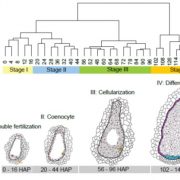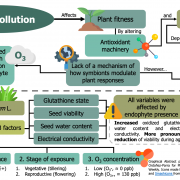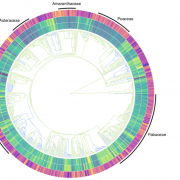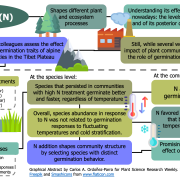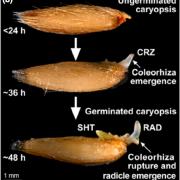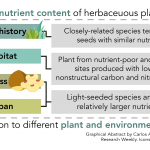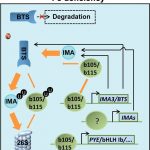Many roads to success: different combinations of life-history traits provide accurate germination timing in seasonally dry environments ($) (Oiokos)
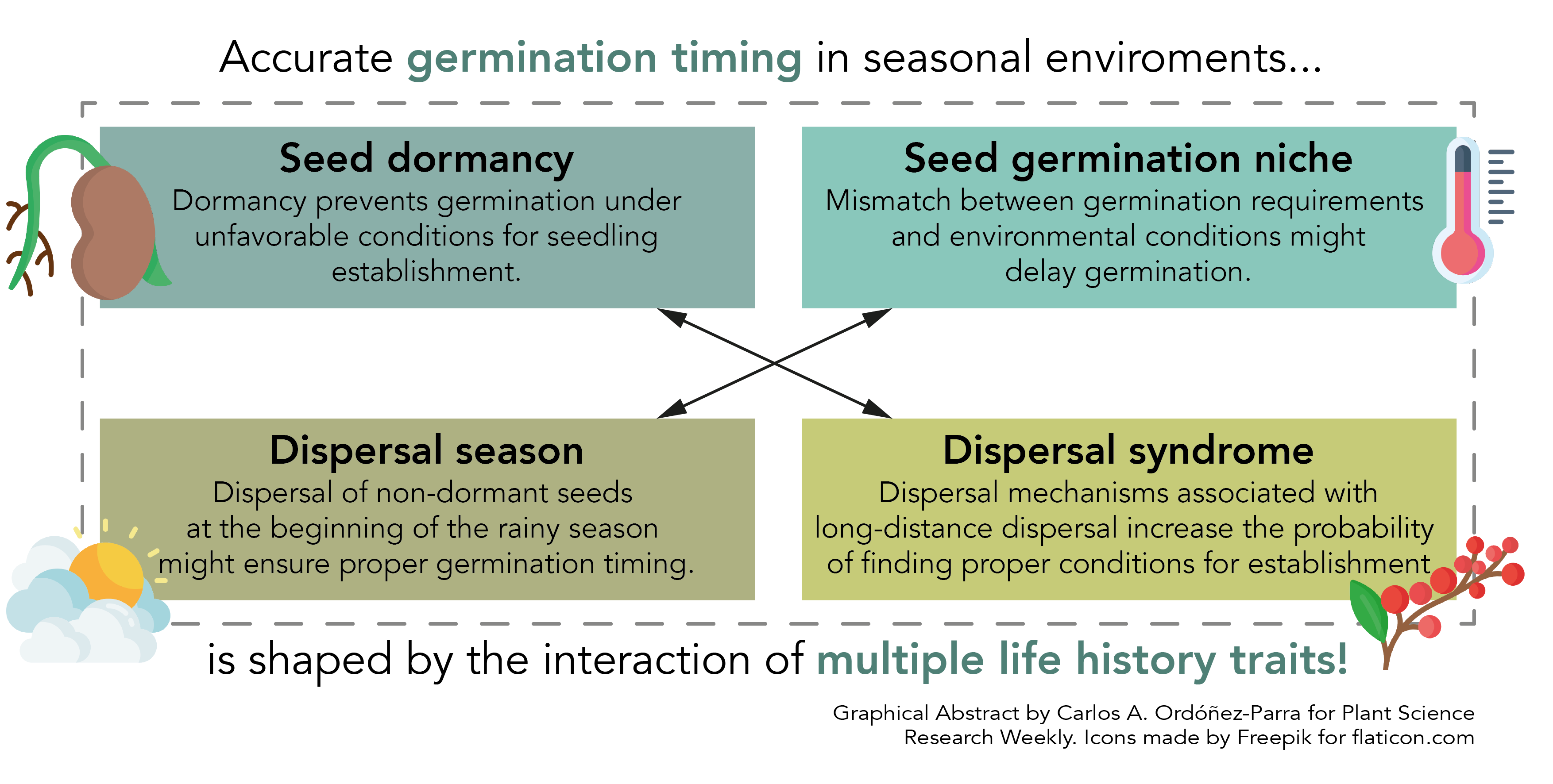 Ensuring that seeds germinate in the most suitable conditions for seedling establishment is critical for plant fitness, especially in environments where water is not readily available all year. Seed dormancy is considered to be the primary mechanism to achieve this. Still, many other different life-history traits such as germination requirements, dispersal season and dispersal syndrome might ensure proper germination timing in the absence of seed dormancy. Here, Escobar and colleagues investigate the functional interactions between these traits in more than 80 species from the Brazilian Cerrado. Seed dormancy was significantly related to dispersal syndrome, with wind-dispersed seeds having higher probabilities of being nondormant. Still, these traits exhibited a strong phylogenetic signal, suggesting that they jointly evolved. In contrast, dispersal season and germination niche did not show such signal, implying they are more evolutionary flexible. Moreover, these two traits were significantly correlated, with species that disperse during the rainy season having germination requirements aligned with the abiotic conditions of that time. Therefore, this research illustrates how these traits are combined to produce functionally equivalent strategies to ensure proper germination timing in seasonal ecosystems. (Summary by Carlos A. Ordóñez-Parra @caordonezparra) Oikos 10.1111/oik.08522
Ensuring that seeds germinate in the most suitable conditions for seedling establishment is critical for plant fitness, especially in environments where water is not readily available all year. Seed dormancy is considered to be the primary mechanism to achieve this. Still, many other different life-history traits such as germination requirements, dispersal season and dispersal syndrome might ensure proper germination timing in the absence of seed dormancy. Here, Escobar and colleagues investigate the functional interactions between these traits in more than 80 species from the Brazilian Cerrado. Seed dormancy was significantly related to dispersal syndrome, with wind-dispersed seeds having higher probabilities of being nondormant. Still, these traits exhibited a strong phylogenetic signal, suggesting that they jointly evolved. In contrast, dispersal season and germination niche did not show such signal, implying they are more evolutionary flexible. Moreover, these two traits were significantly correlated, with species that disperse during the rainy season having germination requirements aligned with the abiotic conditions of that time. Therefore, this research illustrates how these traits are combined to produce functionally equivalent strategies to ensure proper germination timing in seasonal ecosystems. (Summary by Carlos A. Ordóñez-Parra @caordonezparra) Oikos 10.1111/oik.08522


